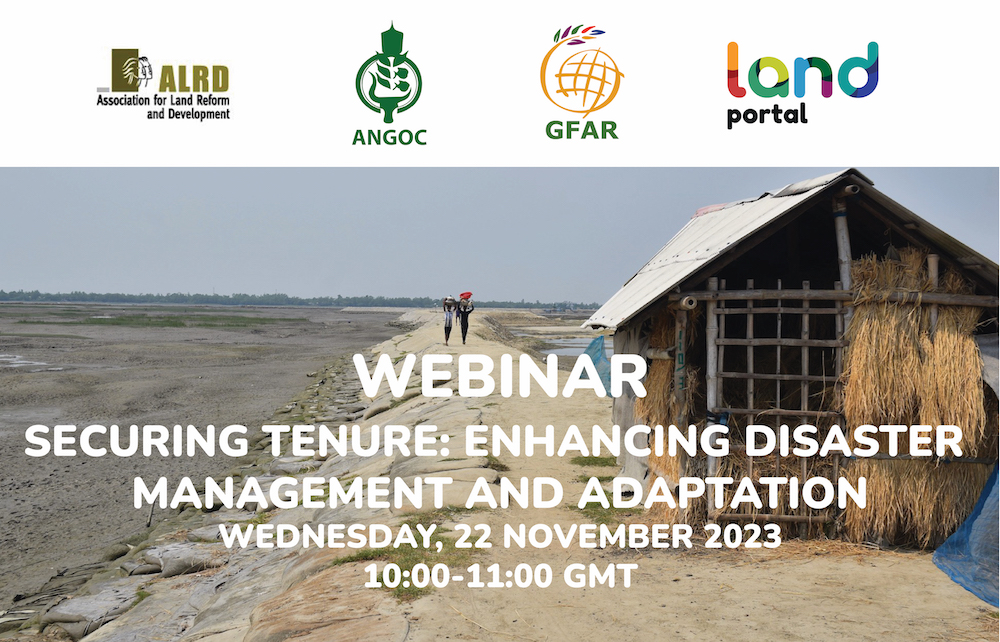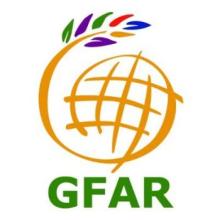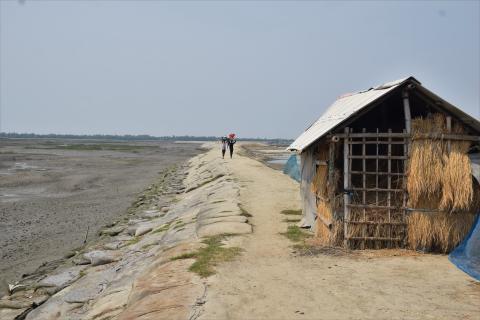November 22nd, 2023 (10AM -11AM GMT)
Climate-change induced disasters and communities’ responses to protect themselves and design solutions have become a top priority on the climate agenda. At the center of mitigation and adaptation discussions have been urban populations, particularly in informal settlements. At the same time, the rural poor with limited or no secure access to land tend to be overlooked. Not only are peasants among the most vulnerable to the impact of floods, droughts, storms, or wildfires. Because of insecure tenure rights in this group, natural disasters often result in land loss and migration as families have little means to reclaim their land or property without records or formal registration documents. Moreover, insecure land rights provide little incentives or capacities to mitigate or adapt to the effects of climate change. People are less likely to plant trees or protect the forest if they fear that their land could be taken at any time. Protecting people’s land rights likely leads to long-term investments in land and may help to combat deforestation.
This webinar aims to draw attention to the underexplored nexus of climate change, natural disasters, and tenure (in)security through presentations from participants from across regions. The speakers will provide insights and highlight practices of mitigation and adaptation in the context of insecure tenure rights, and compare positive case examples as well as challenges.
Suggested questions that the webinar intends to address:
- What are key obstacles for families with insecure tenure rights to engage in and apply mitigation or adaptation measures?
- In which ways do natural disasters magnify tenure insecurity?
- How does tenure insecurity add to deforestation and the increase of climate change-induced natural disasters?
This webinar takes place in the framework of a collaboration between ANGOC, Land Portal, ALRD and GLTN to mainstream the land rights of the rural poor in the climate agenda. This collaboration has the support of the Global Forum for Agricultural Research (GFAR).
Moderator:
- Henry Bonsu - is a British African broadcaster and media consultant and is a regular panelist and reviewer on UK TV news channels ranging from the BBC to Sky.
Panelists:
-
Bulbul Ahmed - is a legal and development professional with over 15 years of experience with key expertise in human rights, gender sensitivity, inclusion, land rights, environmental justice, protection, and conflict sensitivity and peace building as well as Legal Aid, Alternative Dispute Resolution (ADR). He is the deputy manager at the Association for Land Reform and Development (ALRD).
-
Sarah Marquez - is the co-founder of the Caranguejo Tabaiares Resiste collective. She is a popular educator, black woman, and a single mother. She is the councilor for Be Democracy in the State of Pernambuco, and a member of the Pernambuco Black Women's Network, the Climate Observatory (OC) and the Climate Adaptation Network.






